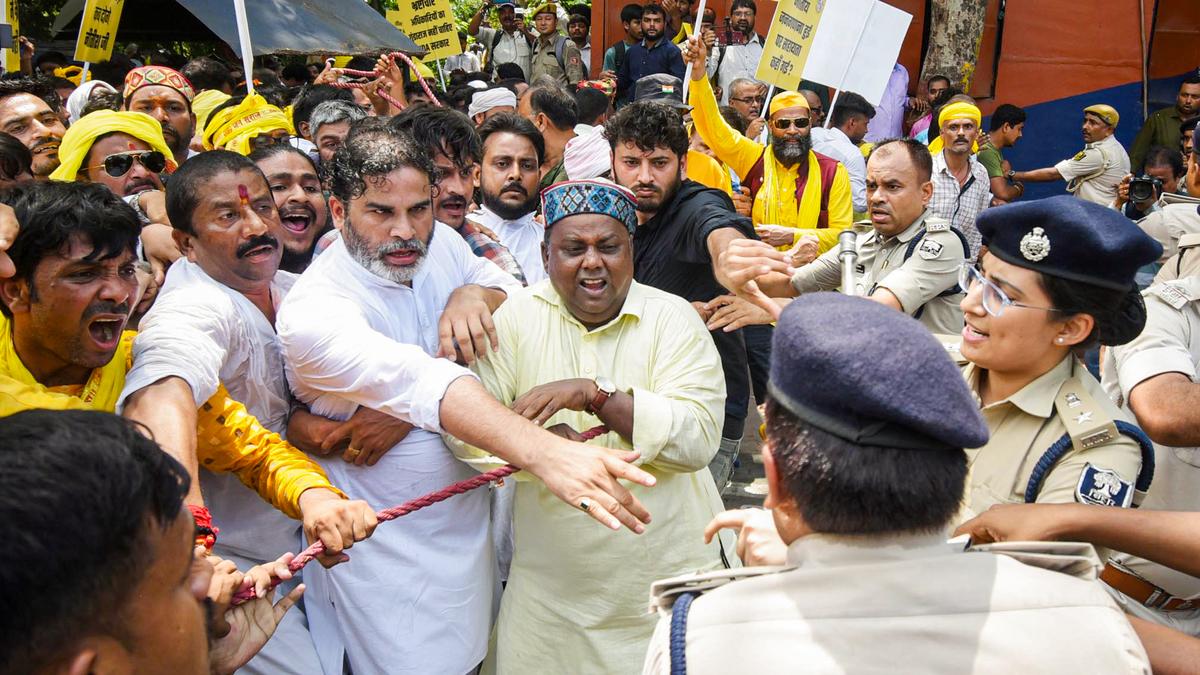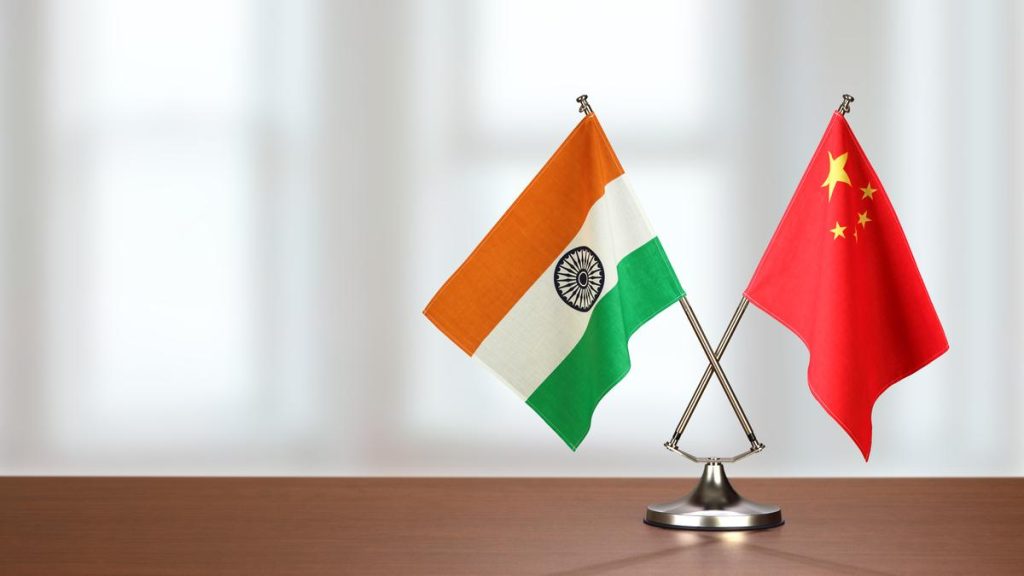Now Reading: Bihar Police Lathi-Charge Injures Jan Suraaj Protesters in Patna
-
01
Bihar Police Lathi-Charge Injures Jan Suraaj Protesters in Patna
Bihar Police Lathi-Charge Injures Jan Suraaj Protesters in Patna

Fast Summary
- Police lathi charged Jan Suraaj Party workers in Patna on July 23, 2025, during a protest march aimed at gheraoing the ongoing Monsoon Session of Bihar Vidhan Sabha.
- The protest was led by Jan Suraaj chief Prashant Kishor, demanding action on issues such as alleged corruption in land surveys, dalit families not receiving promised land allocation, and failure to deliver ₹2 lakh employment aid to 94 lakh poor families.
- Protesters gathered at Patel Chowk near Chitkohra Bridge with banners and placards but faced heavy police barricading that prevented them from reaching the Assembly building.
- In response to attempts by protesters to break through police barricades, authorities used lathi charges. Many party workers were injured in the scuffle; some required hospital treatment for head and leg injuries.
- Prashant Kishor sat on a dharna after clashing with police and criticized the use of force against his party workers. He accused the government of avoiding dialog despite repeated requests over two months.
- A six-member delegation from Jan Suraaj later met Bihar chief secretary Amrit Lal Meena to submit their demands through a memorandum.
- mr. Kishor warned that if government action was not taken soon, he would organize an even larger protest involving one lakh people outside Chief Minister Nitish Kumar’s residence.
Image caption: Police attempt to stop prashant Kishor and supporters during their protest march.
Photo Credit: ANI
Indian Opinion Analysis
The clash between Jan suraaj Party workers and law enforcement shines a spotlight on both public discontent regarding governance issues in Bihar and limitations in political dialogue. Despite repeated public appeals from Jan Suraaj leadership about longstanding grievances like corruption allegations and unfulfilled promises toward marginalized groups like Dalits or low-income families, there appears to be minimal engagement between the state government representatives and dissenting voices.
While protests are integral elements of democratic processes, escalation into violent clashes indicates potential shortcomings either in crowd management strategies or lack of adequate platforms for addressing such concerns constructively. Mr. Kishor’s warnings about escalating agitation underline growing frustrations within sections of civil society that could strain law-and-order efforts further if unchecked dialogue gaps persist.
Resolving these disputes effectively requires institutional mechanisms operating transparently without partisan overtones while showing meaningful commitment local/socioeconomic justice fulfillment areas being point datasets .
Read More: The Hindu























